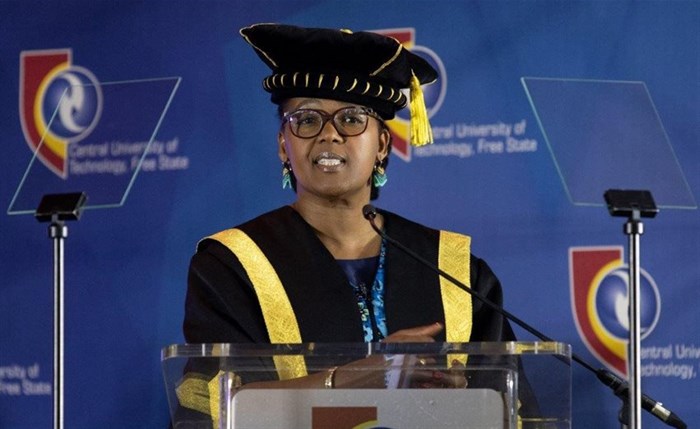
Top stories






More news





ESG & Sustainability
#Sona2026: President announces crisis committee to tackle SA's water challenges









Delivering her inaugural address, Prof Pamela Dube identified four educational priorities as she sees them for a university of technology “Our first responsibility as a university is to undertake a reappraisal of the meaning of technology in the broader population, to demystify its force while bending its potential to the ideal of post-apartheid freedom.
This, we will soon realise, is easier said than done. It will require an education that reaches beyond the confines of our institution, one that is oriented to a nascent public sphere. More than simply talking about the use of technology, we will be asked to educate our people on how technology should be approached to make judgements necessary for a thriving civic life. CUT will have to become a public facing institution that builds confidence in the attitudes towards technological resources,” said Dube.
She added that the second responsibility is to offer the best teaching for our students in the arts of design and invention. “This is not merely an education in speculations about what technology can help us achieve, but in how it reveals our predicament as a species and a planet. The education we offer our students is not merely about the market value of technology but the process of becoming more human. It is about fostering intellectual inquiry, engaged scholarship and critical citizenry. “Thinking beyond’’, is CUT’s motto and in our pursuit of excellence we strive to be satisfied with nothing less than what is possible to envision beyond,” she continued.
‘Our third responsibility is to ensure that we steer clear of an idea of technology as delivering a static world, one where civil war is an order of the day. We need a technology that is always in motion, that is capable of moving us to a more resources-wise future in which we learn to preserve our vital resources as much as we offer to change the circumstances of the most vulnerable and destitute. This requires us to avoid making a fetish of technology,” added Prof Dube.
“My fourth and final plea for this university’s educational vision is that it pursues an ambition to lead our students to a position of self-sufficiency, but more. While we will endeavour to build entrepreneurial skills, we should be careful that such skills are not simply one to enhance markets. Rather, we should also work towards building technological resources and advanced qualifications (for instance in professional MA and doctoral degrees) that will help expand other fields of knowledge, especially in the areas of health, infrastructure development, service delivery, agriculture and manufacturing, and economic sustainability. For this we need a capable, committed and visible professoriate, to contribute effectively towards this university’s educational vision and the renewal of our academic, research and innovation endeavours,” she concluded.
Speaking on behalf of the Dr Nkosinathi Sishi, Director-General of the Department of Higher Education and Training; Thandi Lewin, Chief Director: Institutional Governance and Management Support, reiterated their pride and excitement towards Prof Dube’s new role. “Vice-Chancellor, be very assured of our support and our well wishes from the side of the department, I am very confident that CUT will excel under your leadership. And I’m confident for several reasons; one, Prof Dube brings extensive knowledge to CUT, she has served in many different capacities in the higher education system in South Africa and internationally as well. Secondly, she is extremely qualified for this position given her extensive experience.
Thirdly, and most importantly, Professor Dube served in the department of education as a director in the University education branch, in fact she cut her teeth in the government machinery and she understands as a result the complexity of our history, our education system, our post school education and training system and she has continued to support the work of the department in many different capacities,” said Lewin.
As she takes on her role as Vice-Chancellor and Principal, Prof Pamela Dube has initiated effective partnerships and relationship-building approaches with academic, government, key industry and business role players which will encourage a fruitful tenure.